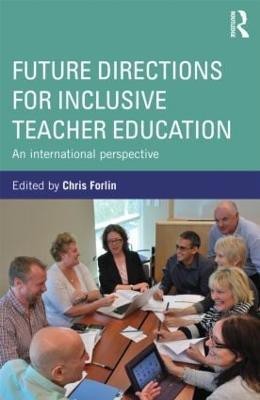Future Directions for Inclusive Teacher Education - An International Perspective(English, Paperback, unknown)
Quick Overview
Product Price Comparison
Are teachers ready for inclusion? What is appropriate teacher education? Traditional approaches to inclusive education focused on learners with disabilities. Modern approaches, however, conceptualise inclusion in terms of providing educational equity and equality of access for all students within the same regular school system. Future Directions for Inclusive Teacher Education provides a wealth of ideas about how to support teachers to become inclusive through the application of positive training approaches. Written by some of the most influential internationally acknowledged experts in teacher education for inclusion and highly experienced researchers, together the authors provide a plethora of ideas for teacher educators to ensure that their training is pertinent, accessible, and futures-orientated. This up to date and accessible book combines three key areas related to teacher education for inclusion, which provide: A review of what is happening across the globe by offering examples from different regions; Preparation for teachers to support learners with a range of diverse needs including disability, poverty, ethnicity, gender, cultural diversity, learning disabilities, Autism Spectrum Disorder, sensory impairments and those who are considered gifted and talented; A consideration of systemic approaches, policy, and partnerships, and how these can be better employed in the future. This highly topical text will support all teaching professionals, educational systems, and schools in their transformation of inclusive teacher education. Table of Contents List of tables List of figures List of contributors Editorial Board Foreword Preface Part I Global perspectives on teacher education for inclusion 1. Responding to the need for inclusive teacher education: Rhetoric or reality? 2. Including children with disabilities in regular classes: Current climate and future direction in Malaysia 3. A training model for enhancing the learning capacity of students with special needs in inclusive classrooms in Thailand 4. Development of learning in regular class and measure of teacher education in China 5. A Mosaic of models: Teacher education for inclusion in Israel 6. The directions of Finnish teacher education in the era of revised Act on Basic Education 7. Preparing teachers to meet the challenges of inclusive education in Negara Brunei Darussalam 8. Emerging issues in teacher education for inclusion in the United States Part II Diversity and its challenges 9. Diversity and its challenges for teachers 10. Inclusion for innovation: The potential for diversity in teacher education 11. Seven essential components for teacher preparation programs for inclusion 12. Gifted, talented or educationally disadvantaged? The case for including 'giftedness' in teacher education programs 13. New dimensions of teacher education on the inclusivity of school guidance for regular schools 14. Gender and achievement in the UK and Hong Kong 15. Conceptualizing social inclusion within teacher education 16. Professional development for teachers of students with autism spectrum disorders in Hong Kong 17. The role of educators in facilitating resiliency that assists normalization for young people with disabilities PART III Future directions: What is needed now? 18. Future directions: What is needed now for effective inclusive teacher education? 19. Interregional discussions around inclusive curriculum and teachers in light of the 48thInternational Conference on Education 20. Teacher education for inclusion in Europe: Challenges and opportunities 21. The construction of an InstituteŌĆōSchoolŌĆōCommunity partnership of teacher education for inclusive education 22. Teacher education for inclusion: A research agenda for the future Index


